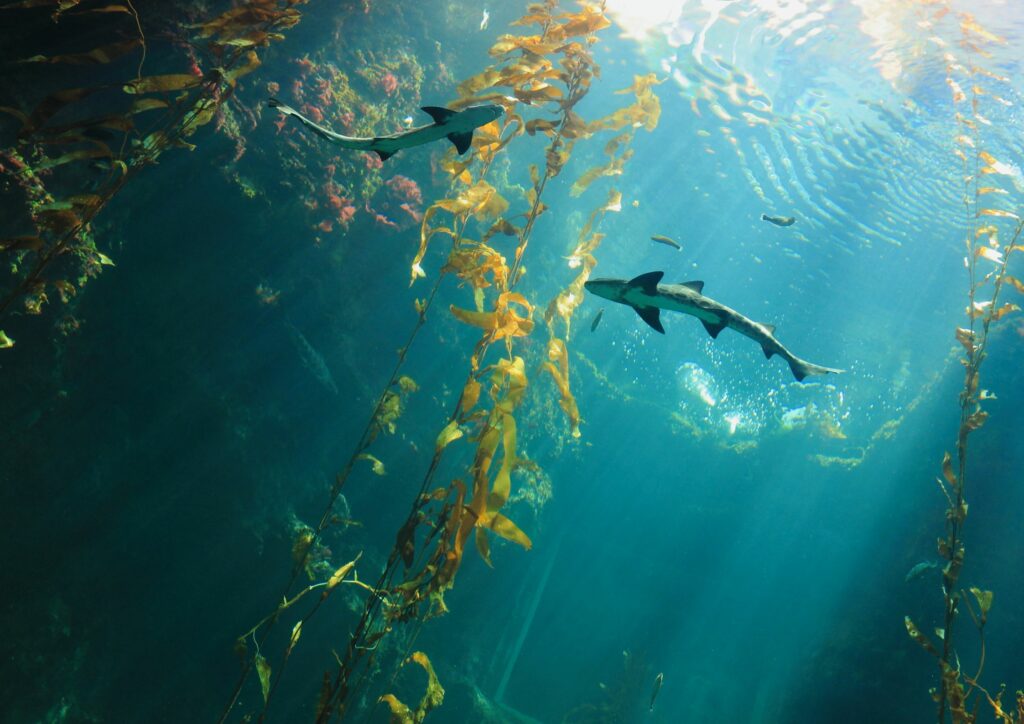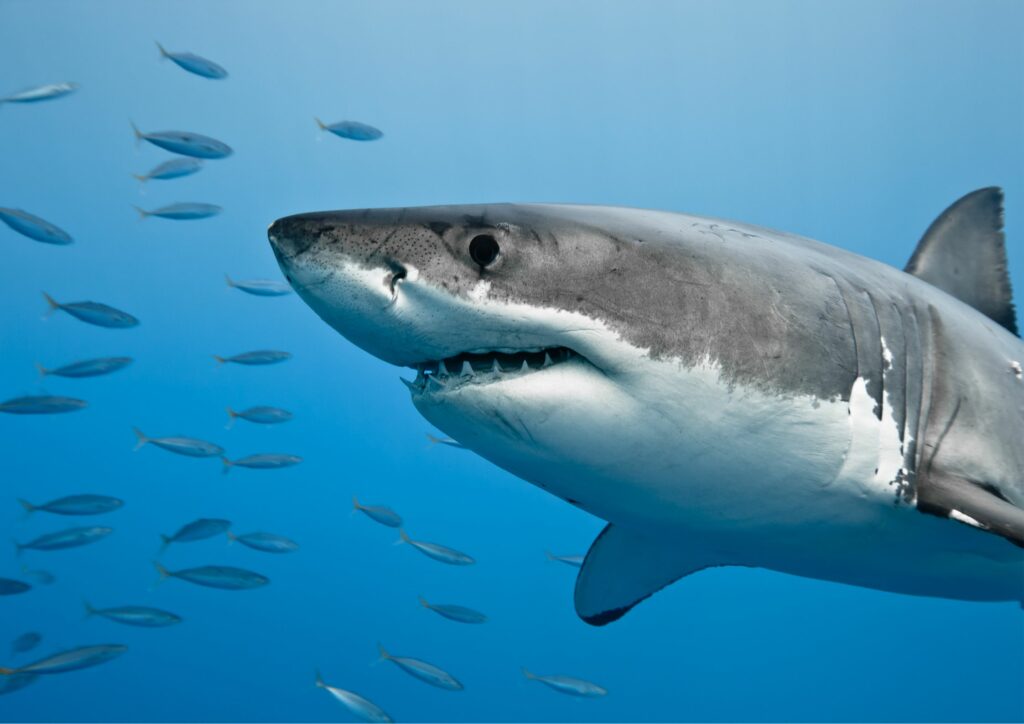As scuba divers, we’ve all heard the whispers – ‘Sharks are lurking beneath the surface, waiting to strike!’ or ‘Don’t venture too far from shore, or you’ll become shark bait!’ But let’s face it: the ocean is full of mysteries, and sharks have gotten a bad rap. It’s time to dive beyond the hype and explore the reality of shark attacks while scuba diving. In this post, we’ll be debunking common myths and misconceptions about these magnificent creatures, so you can overcome your phobias and enjoy the underwater world with confidence.
Myth-Busting: What You Don’t Know About Shark Attacks
Did you know that the chances of being attacked by a shark are incredibly slim? According to the International Shark Attack File, which tracks global shark attack statistics, the average person has a 1 in 3.7 million chance of being bitten by a shark. And yet, fear-mongering media outlets would have you believe otherwise. The truth is that most shark attacks occur in shallow waters, typically less than 6 feet deep, and are often cases of mistaken identity (sharks mistake humans for their natural prey, like fish or seals).
Shark Attack Statistics: Separating Fact from Fiction

So, what do the numbers really look like? According to the Florida Museum of Natural History’s Shark Research Program, between 1580 and 2019, there have been approximately 653 documented shark attacks worldwide. Out of those, only 50 were fatal – that’s a fatality rate of about 7.6%. Compare this to the chances of being struck by lightning (1 in 700,000) or winning the Powerball jackpot (1 in 292 million), and you start to see just how minuscule the risk is.
Shark Behavior: What You Need to Know
So, what drives shark behavior? A key factor is food availability. Sharks are apex predators and primarily feed on fish, squid, and other marine animals. When they’re hungry, they’re more likely to mistake a human for their next meal. However, when there’s an abundance of prey in the area, sharks tend to focus on those sources rather than humans. By understanding shark behavior, you can take steps to minimize your risk: avoid areas with high fish activity, swim in groups, and don’t enter the water with open wounds or bleeding.
Overcoming Phobias: Building Confidence Underwater
For many of us, sharks evoke a primal fear response. But what if you could overcome those phobias and develop a healthy respect for these incredible creatures? The key lies in education and experience. By learning about shark behavior, habitats, and conservation efforts, you’ll gain a deeper appreciation for the ocean’s apex predators. And when you’re scuba diving or snorkeling alongside sharks in their natural habitat, you’ll realize that they’re not mindless monsters – just magnificent creatures doing what comes naturally.
Marine Education: The Key to Shark Conservation
Sharks are an integral part of the marine ecosystem. Without them, our oceans would be drastically altered. As scuba divers and ocean enthusiasts, it’s our responsibility to promote shark conservation and support organizations working tirelessly to protect these magnificent creatures. By sharing your knowledge with others and advocating for shark-friendly practices, you’ll play a vital role in preserving our planet’s most critical ecosystems.
Conclusion: Diving Beyond Fear
As we conclude this journey beyond the myths and misconceptions surrounding shark attacks, remember that the ocean is full of mysteries waiting to be explored. By educating ourselves about sharks and their habitats, we can overcome our phobias and develop a deeper respect for these incredible creatures. And who knows – you might just find yourself drawn to the thrill of diving alongside these magnificent predators. At Gill Divers, we’re committed to helping you make that connection. Contact us today to learn more about our scuba diving courses, marine education programs, or simply to share your own shark encounters!
The Bottom Line: Diving Beyond Fear
In conclusion, it’s time to face the facts: shark attacks are extremely rare, and by understanding shark behavior, you can minimize your risk. By overcoming phobias and building confidence underwater, you’ll develop a deeper appreciation for these incredible creatures. And through marine education and conservation efforts, we can work together to preserve our planet’s most critical ecosystems. So why not take the plunge? Contact us today to learn more about our scuba diving courses, marine education programs, or simply to share your own shark encounters! Together, let’s dive beyond fear and explore the wonders of the ocean.

I’ve always been fascinated by sharks, and I’m glad to see that this blog post is debunking common myths about them. As a scuba diver myself, I can attest that the ocean is full of wonders waiting to be explored.
Hi Eve, thanks for sharing your thoughts on our blog post! We’re thrilled to hear that you’ve always been fascinated by sharks and that this post has helped debunk common myths about them. As a scuba diver yourself, we’d love to hear more about your experiences diving with sharks. Have you had any memorable encounters or learned anything new from your dives? At Gill Divers, we’re passionate about promoting shark conservation and supporting organizations working to protect these incredible creatures. If you have any questions or would like to learn more about our scuba diving courses or marine education programs, please don’t hesitate to contact us at Tel: +65 6734 9373 or Email: [email protected]. We’re always here to help.
I love how this post highlights the importance of understanding shark behavior. It’s crucial that we don’t fear these incredible creatures, but instead, work together to protect them and their habitats.
Thank you so much for sharing your thoughts, Ahmed Razak! We’re thrilled to hear that our post resonated with you. At Gill Divers, we believe that education is key to understanding and appreciating sharks in their natural habitat. By learning about shark behavior and conservation efforts, we can work together to protect these incredible creatures. If you have any questions or would like to learn more about our scuba diving courses or marine education programs, please don’t hesitate to reach out. Contact us at +65 6734 9373 or [email protected]. We look forward to hearing from you!.
I’m impressed by the statistics provided in this post. It’s amazing to see that shark attacks are so rare, and I appreciate the emphasis on education and conservation efforts.
Hi Kavitha, thank you for sharing your thoughts on the post! We’re glad to hear that you found the statistics provided helpful in understanding the rarity of shark attacks. At Gill Divers, we believe that education and conservation efforts are crucial in promoting a healthy respect for sharks and their habitats. If you have any more questions or would like to learn more about our scuba diving courses or marine education programs, please don’t hesitate to reach out to us at Tel: +65 6734 9373 or Email: [email protected]. We’re always here to help.